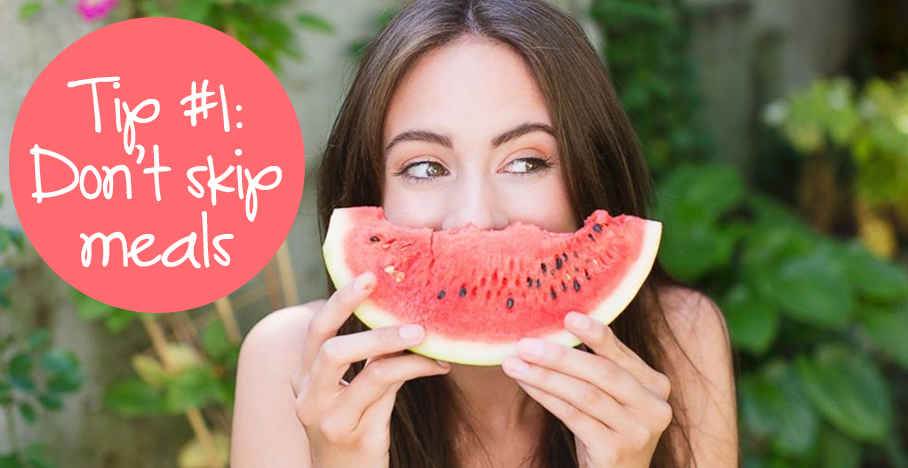Top 10 Food Tips to Reduce the Symptoms of PMS
Last updated: April 2025
Premenstrual Syndrome (PMS) affects up to 75% of women at some point during their reproductive years, with symptoms ranging from mood swings and fatigue to bloating and cravings. As a specialist Dietitian, I’ve seen firsthand how powerful nutrition can be in reducing PMS symptoms and improving quality of life.
It’s widely preached that cutting out certain foods and beverages such as; fat, chocolate, processed sugars, caffeine, fizzy minerals and alcohol, which can exacerbate symptoms in sufferers. This can be helpful depending on your symptoms, health and intake, but did you know that there are a whole range of foods which can be easily incorporated into your diet, and not only ideal for PMS sufferers, but the benefits can definitely be enjoyed by everyone!
So instead of “cutting out”, its all about “adding in”!
In this updated 2025 guide, I’m sharing ten proven food tips backed by science to help you feel more balanced and energised throughout your cycle — along with trusted supplement options and support service if you need personalised guidance.

1. Balance Your Blood Sugar
Eat regular meals and snacks containing protein, healthy fats, and fibre to prevent blood sugar crashes. This helps stabilise mood and energy and reduces sugar cravings common before menstruation.

2. Choose Whole Grains Over Refined Carbs
Whole grains like oats, brown rice, and quinoa support serotonin production and contain B vitamins that are crucial for mood regulation during your cycle.

3. Eat Omega-3 Fatty Acids
Omega-3s are anti-inflammatory and help reduce breast tenderness, cramps, and mood swings. Include oily fish like salmon, mackerel, and sardines twice a week or take a high-quality supplement.

4. Load Up on Leafy Greens
Leafy greens like kale, rocket, and chard are rich in calcium and iron — key minerals that often dip during menstruation. They also provide antioxidants to support liver detoxification.

5. Avoid refined sugar with PMS
If you have opted for smaller, more frequent meals, your body is less likely to crave sugar. It’s a common misconception that sugar will keep you energised, when in fact, it is likely to leave you feeling tired. Choosing natural sources of sugar found in fresh fruit will keep your energy levels high and sugar cravings at bay.
6. Support Your Gut Health
A healthy gut supports hormone metabolism and reduces bloating. Include fermented foods like kefir, sauerkraut, and plain yoghurt, or consider a daily probiotic if tolerated.
7. Limit Salt and Processed Foods
Too much sodium can worsen fluid retention and bloating. Avoid ultra-processed snacks and ready meals where possible — opt for whole foods with minimal ingredients. Dark chocolate is a tasty one to move to, provides you with polyphenols, magnesium and more – it can taste bitter initially but build up over time. Check out the selected options in our food and drink section in our shop.
8. Cut Back on Caffeine and Alcohol
Both can worsen mood swings and interfere with sleep. Try herbal teas like chamomile or peppermint during the premenstrual phase for a gentler alternative.
Dehydration can worsen fatigue and cramping. Aim for at least 1.5–2 litres of water daily. Try infusing your water with lemon, mint, or berries for variety.

9. Increase Magnesium-Rich Foods
Magnesium helps ease cramps, reduce anxiety, and improve sleep. Include foods like spinach, pumpkin seeds, dark chocolate (in moderation), and legumes.
10. Consider Evidence-Based Supplements
Certain supplements like magnesium, calcium, vitamin B6, omega-3s and Vitamin D3 have been shown to reduce PMS symptoms.
🛒 I recommend supplements specific to each individual based on blood testing — these supplements are a targeted blend that supports mood, hormone balance, and energy throughout the month. You’ll find omega 3s and magnesium and many more handpicked items in our specialist Amazon shop
Final Thoughts + Support
Every woman’s experience with PMS is unique, and what works for one may not work for another. If you’re struggling with ongoing PMS symptoms, food cravings, or hormonal imbalances, personalised nutrition can make a world of difference.
📅 Book a 1-1 consultation with us at 121 Dietitian or explore our hormonal support services.
💌 For weekly health tips, recipes, and gut-hormone insights, join our email list.
Book your programme TODAY
We would love to help you….
You can book your PMS 121 Dietitian Programme today
Call 07717392306 or
email: info@121dietitian.com
Information checked & correct on 16th May 2018 and 1st January 2023, 4th April 2025.
Links included in this description might be Amazon affiliate links. If you purchase a product or service with the links that I provide I may receive a small commission.



